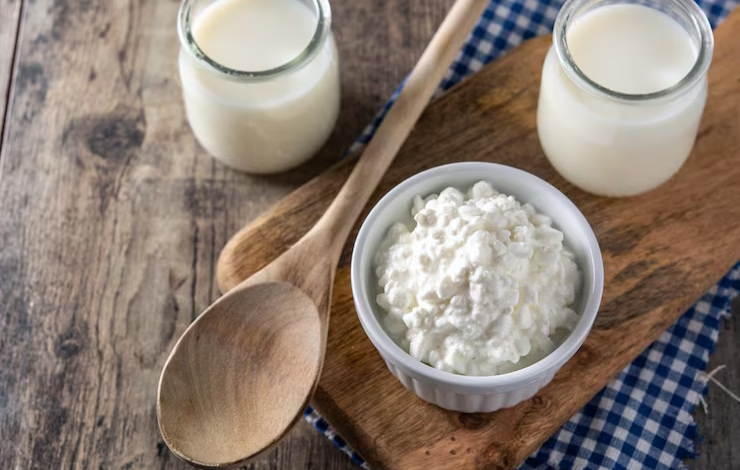What Is Kefir? Amazing Health Benefits You Should Know

Are you searching for a natural way to boost your gut health, improve immunity, and enhance your overall well-being? Kefir might be the superfood you’re missing out on. This fermented milk drink has gained global popularity for its probiotic power and remarkable health benefits.
In this article, we’ll dive into what kefir is, how it’s made, its nutritional profile, and the top health benefits that make it a must-add to your daily routine.
What Is Kefir?
Kefir is a fermented dairy drink made by adding kefir grains to milk. These grains are not actual grains but rather a combination of lactic acid bacteria and yeast in a matrix of proteins, lipids, and sugars. The result? A tangy, creamy drink that’s rich in probiotics, vitamins, and minerals.
There are two main types of kefir:
- Milk Kefir – made with cow, goat, or sheep milk.
- Water Kefir – dairy-free, made with sugar water or coconut water.
Kefir has been consumed for centuries in Eastern Europe and the Caucasus and is now widely recognized as a gut-friendly superfood.
How Is Kefir Made?
To make kefir:
- Kefir grains are added to milk.
- The mixture is allowed to ferment at room temperature for 24–48 hours.
- The grains are then removed, and the kefir is ready to drink.
This fermentation process not only preserves the milk but also enriches it with beneficial bacteria and yeast.
Nutritional Value of Kefir
A single cup (240 ml) of plain, low-fat kefir typically contains:
- Protein: 8–11 grams
- Calcium: 30% of the RDI
- Vitamin B12: 50% of the RDI
- Riboflavin (B2): 20–30% of the RDI
- Phosphorus: 20% of the RDI
- Magnesium: 7% of the RDI
- Probiotics: Billions of live microorganisms
Kefir is also low in lactose due to fermentation, making it suitable for many lactose-intolerant individuals.
Top 7 Amazing Health Benefits of Kefir
1. Improves Digestive Health
Kefir is packed with probiotics – beneficial bacteria that help balance the gut microbiota. Regular consumption can reduce bloating, gas, and constipation and may even help manage irritable bowel syndrome (IBS).
2. Boosts Immune Function
Kefir contains probiotics and compounds like kefiran, which have been shown to enhance the body’s immune response and fight harmful pathogens.
3. Strengthens Bones
Rich in calcium and vitamin K2, kefir supports bone density and may reduce the risk of osteoporosis, especially in older adults.
4. Lowers Risk of Infections
Certain probiotics in kefir, such as Lactobacillus kefiri, are known to inhibit the growth of harmful bacteria like Salmonella and E. coli.
5. Supports Skin Health
Thanks to its anti-inflammatory and probiotic properties, kefir may help reduce acne, eczema, and other skin conditions, promoting a healthy, glowing complexion.
6. May Help Manage Blood Sugar
Studies suggest that kefir can improve insulin sensitivity and reduce blood sugar levels, making it beneficial for people with type 2 diabetes.
7. Promotes Weight Loss
Kefir is low in calories, rich in protein, and helps regulate digestion — all key factors in maintaining a healthy weight and preventing overeating.
How to Include Kefir in Your Diet
Adding kefir to your daily diet is easy and delicious:
- Drink it plain or flavored as a refreshing beverage.
- Blend it into smoothies with fruits and greens.
- Use it as a base for salad dressings.
- Replace buttermilk or yogurt in recipes with kefir.
Who Should Avoid Kefir?
While kefir is generally safe, people with:
- Severe lactose intolerance
- Histamine sensitivity
- Weakened immune systems
…should consult a healthcare provider before consuming kefir regularly.
Final Thoughts: Should You Start Drinking Kefir?
Absolutely! Kefir is a nutrient-dense, probiotic-rich drink that supports gut health, immunity, bone strength, and more. Whether you’re looking for natural ways to improve digestion or just want a healthy, low-calorie beverage, kefir is a fantastic choice.
Start with a small serving and gradually increase your intake to let your body adjust. Your gut will thank you!
FAQs About Kefir
Q1: Can I make kefir at home?
Yes! You just need kefir grains and milk. It’s easy, cost-effective, and allows you to enjoy fresh kefir every day.
Q2: How long does homemade kefir last?
It can last up to 1 week in the refrigerator. Keep it sealed and cold.
Q3: What’s the difference between yogurt and kefir?
Kefir has a thinner texture, more probiotics, and is made using different bacterial strains and yeasts than yogurt.Are you searching for a natural way to boo



